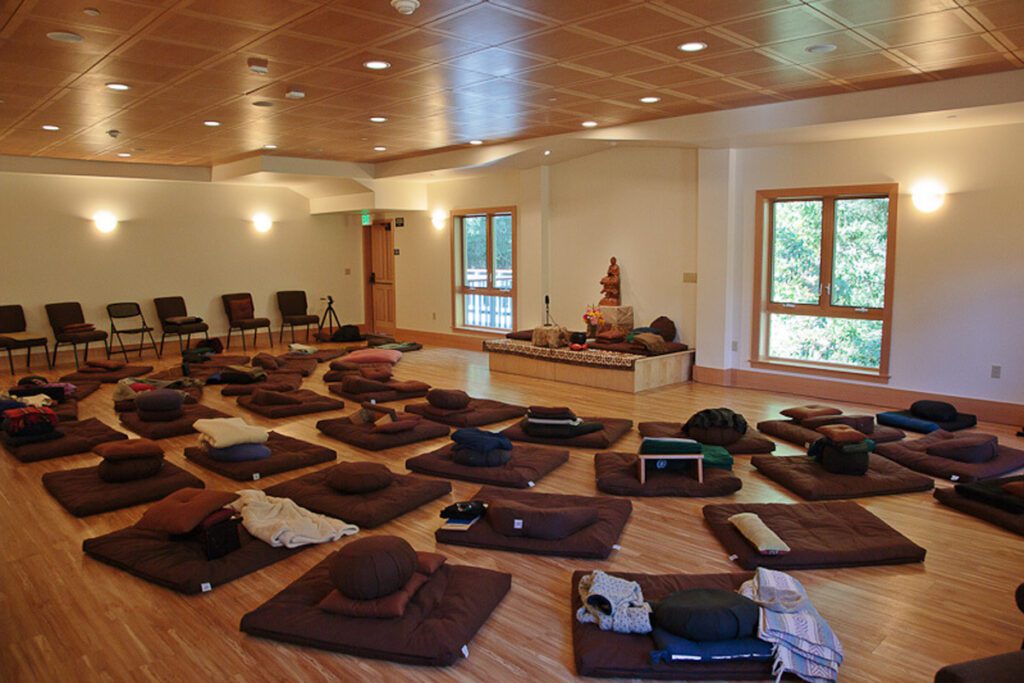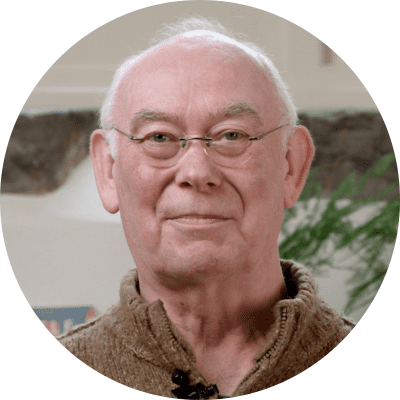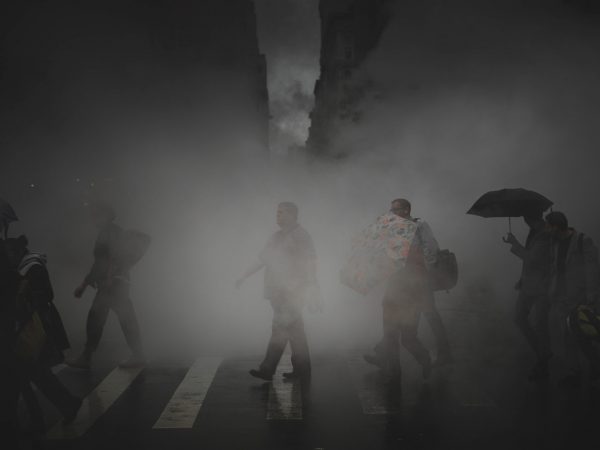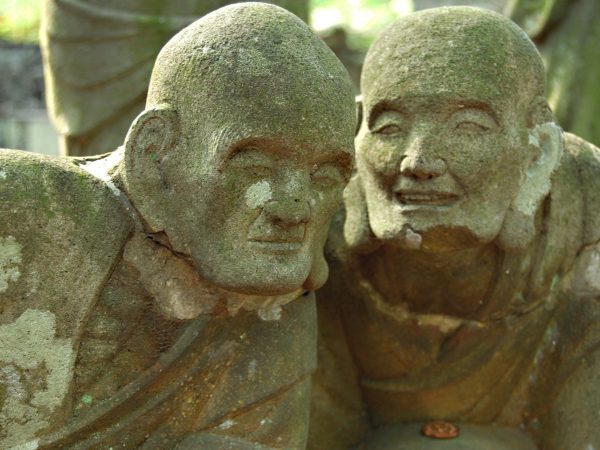The time is ripe for contemporary Western Buddhism to examine its ethical conscience. Let me take as my starting point a comment by the Slovenian philosopher Slavoj Zizek.
When I first read this, about eight years ago, along with his other comments on Western Buddhism and mindfulness, I felt mildly outraged. How, I rationalized, can an academic philosopher, who is clearly not a Buddhist scholar, make such sweeping comments, which could arise only from the “ignorance” of one who has never studied or practiced Buddhism. Having seemingly justified my reactivity, I quietly put aside Zizek’s.
In the summer of 2022, I was teaching a mindfulness retreat in Ireland. It was one of the hottest summers on record in Western Europe, approaching 30 degrees Celsius, a temperature unheard of in Ireland. One evening, as I was giving the obligatory dharma talk in the sweltering Catholic chapel that served as our meditation hall, the familiar words of the Buddha’s Fire Sermon impressed themselves upon me in a way that they had never done before. “Bhikkhus, all is burning … burning with the fire of greed, with the fire of aversion, with the fire of delusion.”
Throughout various parts of Europe, uncontrolled fires were raging across ancient and precious landscapes, destroying everything. Before traveling to Ireland, I recalled seeing a photograph in a daily newspaper of a scene that looked akin to a desert, with a lone figure wandering through it. This devastated and straw-colored wilderness turned out to be Hyde Park in central London. The world, it seemed, was burning with the effects wrought by climate and environmental changes, a direct consequence of the ways that our consumerist societies, together with the politics that feed and bolster these societies, are organized. And yet, here I sat with a large group of mainly middle-class people speaking about the psychology of mindfulness and the beneficial effects of engaging in its practice.
Does our practice of the dharma, whatever form it may take, simply give us a greater ability to cope with exploitation, inequality, and the devastation of the environment, while we focus on our ‘spiritual’ development?

The elephant in the Dharma Hall was the unquestioned social, political, and ethical dimensions of the structures that we all inhabit. Despite its looming presence, this elephant is mostly ignored. There is a refusal to recognize its existence, let alone address it in any significant way. It appeared to me then, as it does now, that unless we bring into full recognition our implication in the devastation of the world via our unexamined complicity in the capitalist and consumerist structures that bring about that devastation, then something is horribly awry with contemporary Buddhism and the mindfulness movements that have their origins in Buddhism. If our quest for personal flourishing in this world, through the study and practice of “Buddhism,” doesn’t lead us to question the structures that give rise to hunger, inequality, prejudice, and injustice, then our “Buddhism” exists in a rarefied atmosphere divorced from the struggle for existence of billions of beings on this planet.
In the pursuit of an all-inclusive apolitical Buddhism, we reinforce the perception that Buddhism is “other worldly” and not interested in or engaged with the most pressing issues of our time. In taking this stance, the various “Buddhisms” of the Western world acquire a pacific face firmly set against forms of political partiality, which renders them incapable of critiquing the current sociopolitical status quo. This, it could be argued, is an abnegation of the ethical responsibility that we have, not just as Buddhists but as human beings, to find ways of living in the world that benefits all and both recognizes and names injustice, inequality, exploitation, and the causes of environmental devastation. To take a line of “least resistance,” concentrating on softer targets primarily associated with the individual, rather than the social and political structures that we as individuals inhabit, is a failure of ethical responsibility.
When we look around our world—the Western world—and observe the current fragility of our democratic structures and the wholesale sellout of our political institutions to corporate and commercial interests, does this not at least require us to mention these facts, together with the ethical dangers that they pose? Does not the sheer mendaciousness of much of the political discourse we hear need highlighting? Do not the patently observable inequalities and injustices of our societies call upon us to respond, not just with a distanced compassion but also with a practical and engaged activism?
In Buddhist thought we are more familiar with asking questions about the right way to live in the sphere of individual action, yet we tend to shy away from examining social and political questions in dharma contexts. The failure to do so can be attributed only to an inability to grasp the complex ethical vision of the Buddha, which not only encompassed the individual but also the lived experience of our social realities. It is far easier, I would suggest, to address individual psychological problems than sociopolitical issues. In evading the sociopolitical, we lay ourselves open, however, to the charge of an ethical cowardice that prioritizes the individual over the social. We often justify this neglect with the generalized claim that we wish to avoid giving offense and possibly alienating people. There is something disingenuous in such assertions, and they can be seen as a smoke screen for a fear of not having all the answers.
But the social and political impacts us all. This is the arena in which our lives are played out. To turn away from this aspect of life is to become complicit in the actions of governments and corporate bodies that affect us all, though not necessarily equally. Some, the wealthy and the middle classes, are more able to insulate themselves against the ravages wrought by bad government and economic inequality.
This leads to the question that we need to ask ourselves: “Does our practice of the dharma, whatever form it may take, simply give us a greater ability, as Zizek suggests, to cope with exploitation, inequality, and the devastation of the environment, while we focus on our ‘spiritual’ development?” Even more to the point, is the question as to how much contemporary Buddhism actively or implicitly abets the status quo by diverting our attention from “external” issues, to concentrate on the “inner” life of the mind and the awakening and flourishing of the individual.
Zizek stresses in his critique that Western Buddhism assists the individual in developing strategies that counter the unpleasant effects of modern life. He suggests that by engaging in the practice of Buddhism (and mindfulness), we can somehow anesthetize ourselves to the harmful effects generated by living in a capitalist world that has institutionalized greed as its hallmark. Buddhism becomes the perfect adjunct to capitalism by focusing upon the individual and turning away from the sociopolitical.
While it’s difficult to criticize the desire for a less reactive mind, this should not be at the cost of a disengagement with society and the world.
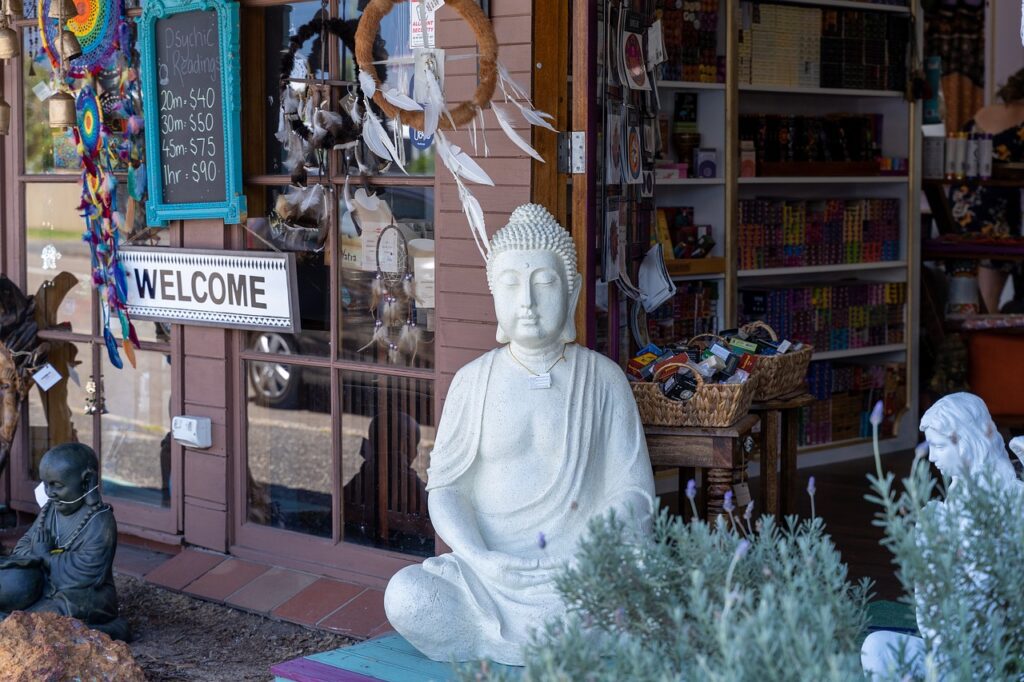
By taking Zizek’s remarks seriously, I have now begun to address some important issues that have bothered me for a considerable time around “the elephant in the Dharma Hall.” Politics, economics, and socioethical structures are topics generally absent from, or at best addressed only obliquely, in most of the dharma discourses that I have heard. Now, I believe, the time has come to find a way to engage with them.
It must be borne in mind, however, that individual psychology is to some extent always reflective of a social psychology. If greed and desire are, for example, primary drivers of individual action, then these will also be major forces in the social system. In addition, it may be the social system that dictates the kinds of desires that you have and how they manifest in your behavior. A capitalist system has, it might be added, a vested interest in generating certain kinds of desire that are aimed at selling goods and increasing profits. The maxim here is that if the desire doesn’t exist, then you create it.
Why do we find ourselves in the position of fixating almost wholly upon the individual rather than the sociopolitical? The answer to this lies in the way that Western Buddhism has become defined by the various meditation techniques derived from the historical traditions. “Buddhism” for the individual practitioner is often defined by the “brand” of meditation that is practiced—zazen, Vipassana, Dzogchen, etc.
“Meditation” becomes the dominant trope of much of Western Buddhism, and its centrality is reflective of a wish to develop a mind that is less reactive to the turmoil of the world. We live amidst political, economic, and social upheaval, all of which create a sense of insecurity, and of not feeling entirely at home. While it’s difficult to criticize the desire for a less reactive mind, this should not be at the cost of a disengagement with society and the world. That we nonetheless must accept the “as it is” of the way that we find ourselves in the world—that we inhabit structures dominated by capitalist, libertarian, consumerist ideas and politics—does not discount engagement with and critique of those systems. To place one’s primary focus on individual human flourishing is to lose sight of the locus wherein that flourishing can or cannot occur. The flourishing of the many, as opposed to the few, is a political issue that we ignore at the peril of simply reinforcing the status quo. We inhabit societies that are permeated by a dominant sociopolitical ethos that inevitably and inescapably pervades and excludes any alternative that we may wish to actualize.
Capitalist and consumerist structures haunt our expectations and horizons of understanding in ways that are often concealed, unless brought to light by sustained reflection. That our present societies uphold inequality, repression, greed, and hatred may be obvious in some areas, but their pervasiveness is revealed only when those structures are subjected to intense scrutiny. Inescapably, the forms of prejudice, hatred, greed, and delusion nurtured within those societies have a direct effect on who we are, and who we think we are. The individual and the social are thus inextricably entwined.
To question and subject to critique the “givens” of our societies without opting for quick and neat solutions encourages us to engage in an ethical thinking far greater than that merely associated with ideas of individual liberation. “Waking up” becomes not just a task for the individual but one for the whole sociopolitical structure. Engaging exclusively with the individual quest is to address only a small portion of the “elephant” that lurks in full view in the Dharma Hall.
Firstly, we must begin to actively confront and then talk about the injustices created by the system that we inhabit. As the philosopher Hannah Arendt said, “We humanize what is going on in the world and in ourselves by speaking of it, and in the course of speaking of it we learn to be human.” To remain silent is not an option, for to do so is to lose something of our humanity by acceding to the status quo and becoming complicit in the iniquities of the system—we are all ethically responsible even by our omissions. The path of the dharma is above all about becoming human by engaging in a conversation, talking about what it might mean to “wake up,” and then enacting the fruits of that deliberation. We “wake up” not just individually but collectively by exploring an imaginative vision of the form our societies might take. But we also must see clearly how the present structures fail us both individually and collectively—we are “crying,” and “crying out for,” a new vision of what it may mean to live ethically and collectively.
Secondly, we must act. Talking is not enough, because the world can be changed only by our acting upon it—talking is a necessary but not sufficient condition for change to occur. There is little time for passive approaches that delay action. Let us not, however, underestimate the vital need for the conversation to take place. For our societies to be moved toward greater equality, there must be an analysis of the origins of the inequalities and other violations of human and environmental justice that bedevil the present system. Then, and only then, can this be followed by positive action that redresses the balance of society. This is, once again, not simply an individual problem but a political and ethical issue that can be dealt with collectively only by the body politic—you, I, and the myriad of others that make up that body. A new society can come about only by a collective forging of the form that society might take. To not engage is simply to follow unexamined ways of living, both collectively and individually, and to be driven blindly by the powerful forces of self-interest.
The silence of the dharma world toward the political forces that have brought us to this point is not questioned or critiqued often enough. Such silence amounts to a complicity by omission.

It is wrong for us to separate ethical and political issues as if they are two distinct spheres. We may talk about ethics in the Dharma Hall but neglect to emphasize how this impacts the social/ethical world. This is a huge omission, as the ethical is the political; it is about living together in the best way possible. If, as Buddhist thought suggests, compassion, kindness, and understanding are values to be developed in the individual, then these are ethical qualities we should wish to see cultivated in the political realm. Far from compassion and kindness, what we see generated is the cultivation of a great deal of violence, hypocrisy, exploitation, coercion, and inequality, even in the most democratic societies. This situation has led, among many Buddhist practitioners, to a progressive disaffection with the political as the realm of action and a retreat to the isolated “cave” of the individual wanting “nothing to do with politics.”
Buddhism, in all its forms, espouses compassion and altruism as central ethical concerns, and yet these are clearly at odds with neoliberal economic ideals based on rather crude Darwinian assumptions about the “survival of the fittest” and the meritocratic primacy of the individual. Contrary to this, an emergent “awakened” society would need to embody compassion, kindness, and desire for social justice in a politically viable and collective form. How to make this manifest is the large question that calls upon us all to give it consideration. We have to put aside romanticism and idealism to enter into full and frank discussions about what needs addressing and what can, and cannot, be achieved through such discussions.
When the human domain is subjected to and subjugated by extremist political ideologies that privilege and prioritize individuals and their desires, this in turn impacts the realm of the nonhuman. If there is brutality, violence, exploitation, and objectification both performed and sanctioned in the human realm, then this is equally true of that which is enacted on the voiceless, nonhuman animals and the environment with even greater force. Ethically, that which is without voice must be spoken up for and protected.
We may despair at the individual and institutionalized greed that has brought the world to the point of collapse. And yet, the silence of the dharma world toward the political forces that have brought us to this point is not questioned or critiqued often enough. Such silence amounts to a complicity by omission. There should be a constant highlighting of the political forces that have brought us to the critical juncture that we find ourselves in. Although we speak of compassion, kindness, and nonviolence, we assume it’s sufficient to adopt these only at an individual level without any need to apply them to the political sphere. Yet it is this realm that concerns us all, and we cannot wholly divorce ourselves from it. Capitalist economic structures don’t have much room for ethical values unless they can be monetized, and yet they infiltrate every dimension of our lives. To think we could affect such a divorce from the political world is extremely naive. Even dharma centers stand in the midst of our political structures and are subservient to them.
Where do such considerations leave us? To regain its ethical conscience, contemporary Buddhist thought and practice must own up to its dependence on the status quo and confront its reluctance to address issues of a distinctly political nature. This change can occur only when we recognize that any division between the political and the individual is purely spurious, as the two realms are wholly dependent upon one another. If this is the case, then focusing upon the individual to the exclusion of the sociopolitical justifies the kinds of criticism aimed at Western Buddhism by Slavoj Zizek. Buddhism, on this reading, becomes simply a form of passive nihilism that seeks to create meaning for the individual by social withdrawal, leaving the social and political to the forces that dominate society.
That the individual and political are not wholly separate can be seen in the life of the Buddha. In the texts of the Pali canon, we can see the Buddha engaging with the social and political structures of his time, critiquing his society and its parameters by redefining and addressing many of its accepted tropes that issue from the dominant forces within that society, as well as recommending strategies that enable the individual to lead an ethical and good life. If we reduce Buddhist thought and practice solely to a personal and private undertaking, then we lose something immensely important that has the potential to change many aspects of the societies that we live within. The Buddha appeared to know this 2,600 years ago.
To reinaugurate what the Buddha began in his own lifetime will require us to step out into less safe zones of discourse and start a conversation about how the political structures dominating our societies manifest, and what vision we have for our societies. This can commence only when we have the courage to speak and confirm our humanity in that speaking.
